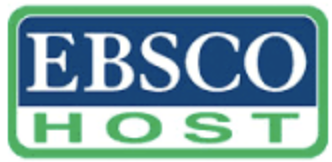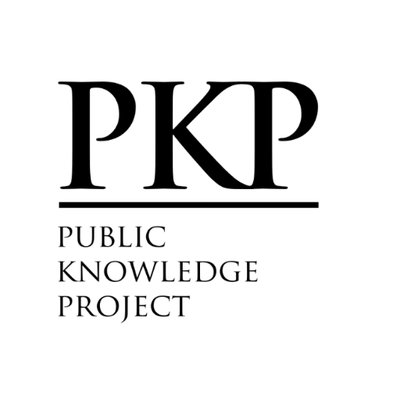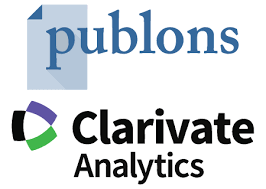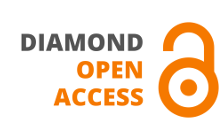Audit quality, ownership concentration and financial reporting
a survey of accountants in Cameroon
DOI:
https://doi.org/10.59051/joaf.v9i1.139Keywords:
information quality, ownership concentration, quality of external auditAbstract
The main objective of this study is to analyze the effect of the quality of external audit and ownership concentration on the quality of financial reports. We apply logistic regression to data collected through a questionnaire from 61 of accountant and found that the probability of having good information increases with the fact that the auditor is a membership of an professional organizations and the amount of the auditing fees. Furthermore, that probability is negatively related to the duration of the collaboration between the auditor and the audited firms. Also, we find on the one hand that in companies where there is a ownership’s concentration, the presence of an auditor who belong to an international network improves the quality of financial reporting, and, on the other, the combined effects of the auditing fees, the experience of the auditor, and ownership concentration reduce the chances of having good information.
Downloads
References
Abbott, L.J., Parker, S. et Peters G.F., (2004). Audit committee characteristics and restatements, Auditing. Journal of Practice and Theory 23: 69-87.
Andriamasy, V., Rakoto P., (2008). Les mécanismes de gouvernance et l’amélioration de la pertinence de l’information comptable. Revue Française de Gouvernance d’Entreprises 4 : 59-87.
Antle, R., Gordon, E., Narayanamoorthy, G., Zhou, L., (2006). The joint determination of audit fees, non-audit fees and abnormal accruals. Review of Quantitative Finance and Accounting 27 (3): 235-266.
BAD (2004). Profil de gouvernance pays-Cameroun.
Bakkour, D., (2013). Un essai de définition du concept de gouvernance. Université de Montpellier 1, laboratoire Montpelliérain d’économie théorique et appliqué.
Beatty, R., (1989). Auditor reputation and the pricing of Initial Public Offerings. The Accounting Review 64: 693-709.
Ben Saad E., Lésage C., (2007). Des facteurs d’indépendance à un système d’indépendance: proposition d’une nouvelle grille d’analyse de l’Indépendance de l’auditeur. Association Francophone de Comptabilité.
Chalmers, K., Godfrey, J.M., (2004). Reputation costs: the impetus for voluntary derivative financial instrument reporting. Accounting, Organizations and Society 29: 95-125.
Chan, P., Ezzamel, M., Gwilliam, D., (1993). Determinants of audit fees for quoted UK companies. Journal of Business Finance and Accounting 20 (6) : 765-786.
Charreaux, G., (1987). La théorie positive de l’agence : une synthèse de la littérature, in De nouvelles théories pour gérer l'entreprise, Ed Economica.
Charreaux, G., (1997).Vers une théorie du gouvernement des entreprises, in Charreaux G. (1997), Le gouvernement des entreprises, édition Economica, paris.
Chemangui, M., (2004). Conceptualisation et validation d’une échelle de mesure de la qualité des travaux d’audit externe et interne : Application selon la démarche du paradigme de Churchill, Thèse de Doctorat en Sciences de gestion, Université de Franche-Comté, Besançon.
Claessens, S., Fan J., (2002). Corporate governance in Asia: A survey. International Review of Finance 3 (2): 71–103.
Cormier, D., Lapointe, P., (2006). The Auditor’s Assessment and Detection of Corporate Fraud : Some Canadian Evidence. International journal of Accounting, Auditing and Performance Evaluation 3 (2):540-689.
De Angelo, L., (1981a). Auditor independence, low balling and disclosure regulation. Journal of Accounting and Economics 3 (1):13-27.
DeAngelo, L.E. (1981b). Auditor Size and Audit Quality. Journal of Accounting and Economic (3): 183-199.
DeFond, M.L., (1992). The association between changes in client firm agency costs and auditor switching. Auditing, A Journal of Practice and Theory 11: 16-31.
Djongoué, G., (2007). Fiabilité de l’information comptable et gouvernance d’entreprise: une analyse de l’audit légal dans les entreprises Camerounaises. Communication au Colloque international, sur la gouvernance : quelles pratiques pour promouvoir le développement économique de l’Afrique. Lille, novembre.
Djoutsa Wamba L., Takoudjou Nimpa, A., Wamba H., (2015). Efficacité des mécanismes de gouvernance dans la lutte contre les distorsions à l’image fidèle de l’entreprise. Revue Camerounaise de Management, Juillet-Décembre, 1-16.
Erickson, M., Handon, M., Maydew, E., (2005). Is There a link Between Executive Equity Incentives and Accounting Fraud. Journal of Accounting Research 42 (3): 589-615.
Farber, D., (2005). Restoring Trust After Fraud: Does corporate Governance Matter? The Accounting Review 80 (2): 539-561.
Foka Tagne, A.G., Ndassi Yepgnou, J., Kamdem, D., (2017). Les honoraires incitatifs au cœur d’une réflexion sur la qualité d’audit en Afrique subsaharienne francophone. Journal of Academic Finance, 8 (1): 93-110.
Francis, J.R., (2005). What do we know about audit quality? The British Accounting Review 36 (4):345-368.
Gharsellaoui, L., Jarboui A., (2017). Qualité d’audit externe et transparence de la communication financière : l’impact de la propriété institutionnelle dans les entreprises Tunisiennes cotées. Journal of Academic Finance (8):35-55.
Hay, D., Knechel, W. R., Ling, H. (2008). Evidence of the impact of internal control and corporate governance on audit fees. International Journal of Auditing 12: 9-24.
Healy, P., (1985). The Effect of Bonus Schemes on Accounting Decisions. Journal of Accounting and Economics 7:85-107.
Jensen, M., Meckling, W. (1976). Theory of the firm: Managerial behavior, agency costs and ownership structure. Journal of Financial Economics 3 (4): 305-360.
Knapp, M.C., (1991). Factors that audit committee members use as surrogates for audit Quality. Auditing: A Journal of Practice and Theory 10, (1): 35-52.
Kreps D. M., (1990). Corporate culture and economy theory, perspectives on positive political economy, Cambridge university press, 90-144.
Lajmi, A., Rabah Gana, M. (2011). Structure de propriété et qualité de l’audit externe : cas des entreprises belges cotées. Gestion 2000 29 : 83-97.
Lapointe P., (2000). Structure de propriété, investisseurs institutionnels et performance de l’entreprise : le point des connaissances. Les cahiers de la recherche, Université de Sainte-Foy, Québec, Canada, G1K 7P4.
La Porta R., Lopez-de Silanes F., Shleifer A., (2006). What Works in Securities Laws? Journal of Finance 61 (1):1-32.
Manita, R., Chemangui, M. (2007). Les approches d’évaluation et les indicateurs de mesure de la qualité d’audit : « une revue critique ». Actes du 28ème Congrès de l’Association francophone de Comptabilité, Mai.
Manita, R. (2009). La qualité du processus d’audit : une étude empirique sur le marché Tunisien. In la place de la dimension européenne dans la Comptabilité-Contrôle-Audit, France.
Mayangsari, S., (2007). The auditor tenure and the quality of earnings: Is mandatory auditor rotation useful? Unhas Makassar 26 (28): 1–25.
Mballa Atangana, Y.V., (2016). La production de l’information comptable au sein des entreprises camerounaises : vers l’urgence d’une réforme institutionnelle ? Revue de Management et de Stratégie 3 (2) : 48-77.
Mballa Atangana., Y.V., Feudjo, J. (2016). Peut-on faire confiance aux états financiers ? Le cas de 8 entreprises camerounaises. 1ère Journée d’Etude Africaine en Comptabilité et Contrôle (JEACC) tenue à Dakar le 15 décembre.
McKinley, S., Pany, K., Reckers P.M.J., (1985). An examination of the influence of CPA Firm type, Size and Mas provision on Loan Officer Decisions and Perceptions. Journal of Accounting Research 23 (2): 887-896.
Mitra, S., Déis, D.R., Hossain, M. (2007). The empirical relationship between ownership characteristics and audit fees. Review of Quantitative Finance and Accounting 28 (3): 257-285.
Morck, R., Shleifer, A., Vishny, R.W., (1988). Managerial ownership and market valuation: An empirical analysis. Journal of Financial Economics 20 :292-315.
Ngantchou, A., (2008). Recentrage du cadre comptable, durcissement de l’environnement fiscal et persistance de la gestion des données comptables : Une étude du comportement des PME camerounaises. La comptabilité, le contrôle et l'audit entre changement et stabilité, 29ème Congrès de l’AFC, ESSEC-France, 28-30 mai.
Ngok Evina, J.F., (2010). Système de gouvernance et performance des entreprises camerounaises : un mariage harmonieux. Revue des Sciences de Gestion 3 (243-244) : 53-62.
Noubbigh, E.N., (2014). Interdépendance entre audit interne et audit externe et leurs impacts sur la qualité du reporting financier dans le contexte tunisien, Thèse de Doctorat, Université de Tunis, Institut Supérieur de Gestion.
O’Sullivan, N. (2000). The impact of board composition and ownership on audit quality: evidence from large UK companies, British Accounting Review 32: 397-414.
Palmrose, Z.V., (1988). Analysis of auditor litigation and audit service quality. Accounting Review, 63 (1): 55-73.
Piot, C., Janin R., (2004). Qualité de l’audit, gouvernance et gestion du résultat comptable en France. 25ème congrès de l’Association Francophone de Comptabilité, Orléans, Mai, 147-175.
Richard, C. (2003). L’indépendance de l’auditeur : pairs et manques. Revue Française de Gestion 6 (147) : 119-131.
Sangue-Fotso, R., (2011). L’efficacité de la structure de contrôle des entreprises camerounaises. Thèse de Doctorat, Université de Franche-Comte.
Sangué-Fotso, R., (2015). Qualité de l’audit et réduction des scandales financiers en contexte Camerounais. Revue de Management et de Stratégie 2 (1) : 1-17.
Sarens, G., Abdolmohammadi, M.J., (2011). Monitoring Effects of the Internal Audit Function: Agency Theory versus other Explanatory Variables. International Journal of Auditing 15 : 1-20.
Smaili, N., (2006). La gouvernance comme moyen de prévention et de détection des irrégularités comptables pouvant mener à la fraude. Thèse pour l’obtention du Ph. D en administration, HEC-Montréal.
Titman, S., Trueman B., (1986). Information quality and the valuation of new issues. Journal of Accounting and Economices 8 (2): 159-172.
Tsafack N.R.A., Mpom Tieck S.M., Mfou’ou M.J., (2011). Etat de la gouvernance en Afrique de l’ouest : Cameroun. Projet de suivi de la gouvernance en Afrique de l’ouest.
Vienot, M., (1999). Rapport du comité sur le gouvernement d’entreprise. Document Association Française des Entreprises Privées et Mouvement des Entreprises de France, Juillet, Paris.
Wafa, M., (2013). Mécanismes de gouvernance et qualité de l’audit externe : le cas français. Revue Gestion et Organisation (5): 183-195.
Wallace, W., (1980). The future of business information reporting. Journal of Accountancy 150 (6): 59–62.
Watts, R.L., Zimmerman J.L., (1986). Positive accounting Theory, Prentice-Hall, Contemporary Topics in accounting series Englewood Cliffs, New Jersey.
Downloads
Published
How to Cite
Issue
Section
License
Copyright (c) 2018 Alain Gilles FOKA TAGNE, Prince Dubois KENFACK HIKOUATCHA, Joséphine Florentine MBADUET, Joseph NDASSI YEPGNOU

This work is licensed under a Creative Commons Attribution-NonCommercial-NoDerivatives 4.0 International License.
Authors who publish with this journal agree to the following terms:
- Authors retain copyright and grant the journal right of first publication with the work simultaneously licensed under a Creative Commons Attribution License that allows others to share the work with an acknowledgement of the work's authorship and initial publication in this journal.
- Authors are able to enter into separate, additional contractual arrangements for the non-exclusive distribution of the journal's published version of the work (e.g., post it to an institutional repository or publish it in a book), with an acknowledgement of its initial publication in this journal.
- Authors are permitted and encouraged to post their work online (e.g., in institutional repositories or on their website) prior to and during the submission process, as it can lead to productive exchanges, as well as earlier and greater citation of published work (See The Effect of Open Access).






















